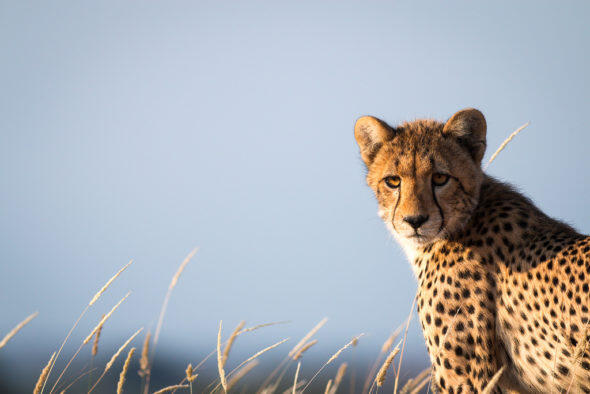Cheetahs on cars. Cheetahs in boats. Cheetahs in mansions. The growing cheetah pet trade, spurred on by social media posts of wealthy owners posing in photos with their exotic pets, has gained the attention of the international community.
Cheetahs face major threats from habitat loss and fragmentation, but the exotic pet trade in the last five to ten years has become an increasingly serious problem, say cheetah conservationists. (Read more at National Geographic’s Wildlife Watch).
Now the member governments of CITES, the treaty that governs the international wildlife trade, have agreed to new recommendations to curb cheetah trafficking to Gulf states. It’s the culmination of three years of work, which began at CITES CoP16 in Bangkok in 2013.
There, the cheetah trade first rose to prominence. The parties agreed to a series of decisions, which led to a 2014 report calling out several Middle Eastern states for not doing enough to tackle the trade. From there, a working group led by Kuwait, where many trafficked cheetahs end up as pets, came up with recommendations on how to crack down on the illegal trade. Earlier this year, the CITES Standing Committee approved them. And today, they got a sign-off from the committee at CoP17. All that’s left is formal approval by the plenary at the CoP next week.
The recommendations, among other things, include working with social media and e-commerce outlets to address the illegal trade taking place online, implementing new reporting requirements to help conservationists get a handle on how bad the problem is, and encouraging cooperation and coordination among countries’ law enforcement agencies.
Cheetah conservationists say this is the perfect example of CITES having a positive and tangible effect. Having a destination country chair the working group was a good show of leadership, and it’s not all that common for range and destination countries to agree so easily.
“In general countries have worked very positively and constructively to try and address the issue. That’s not always the case,” says Sarah Durant of the Zoological Society of London and Nat Geo’s Big Cats Initiative.
Not only has this meeting kept up the momentum to fight the illegal cheetah trade, the 2014 CITES report encouraged countries to take action on their own.
The United Arab Emirates, another major destination country, is on the verge of passing domestic legislation outlawing the keeping of pet cheetahs.
The UAE, Kuwait, Kenya, South Africa, the European Union, United States, and Zimbabwe all spoke in favor of adopting the recommendations Thursday morning, as did the nonprofit Cheetah Conservation Fund.
It’s encouraging to see everyone on the same page, says Nick Mitchell of the Wildlife Conservation Society.
“Shutting it down will be extremely difficult,” he says. “But we’ve made great progress.”
Source: National Geographic











